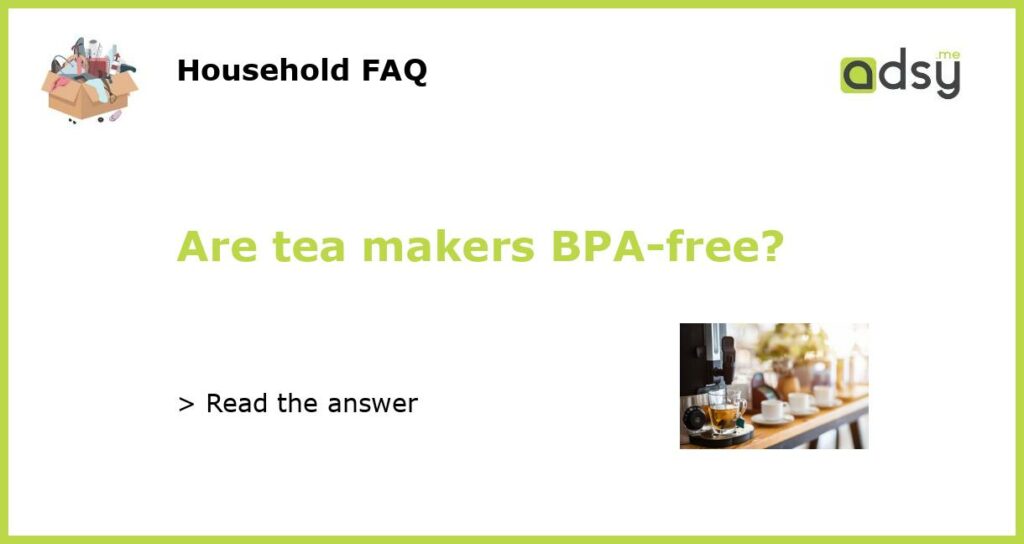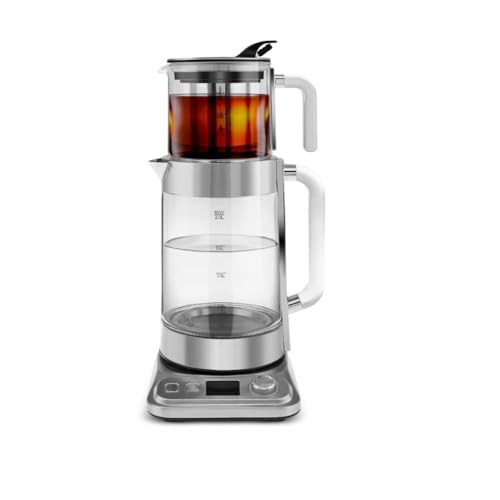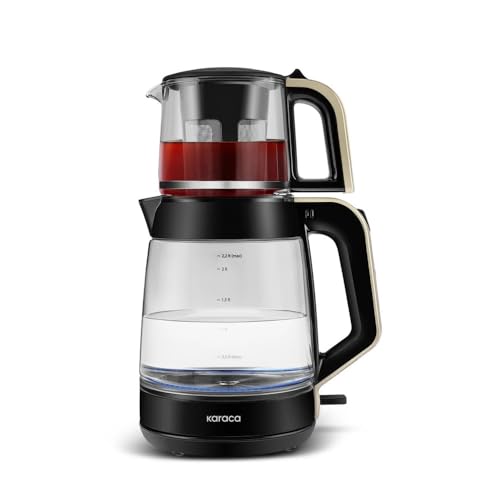Yes, tea makers can be BPA-free and safe for use
Tea is one of the most popular drinks in the world, and many people enjoy brewing their tea using a tea maker. However, in recent years, concerns have been raised about the potential health risks associated with certain chemicals that can leach into food and beverages, including BPA (bisphenol A).
Understanding BPA and its potential health risks
BPA is a chemical compound used in the production of certain plastics and resins. It has been widely used in the manufacture of food and beverage containers, including some tea makers. BPA can mimic the effects of estrogen in the body and has been associated with a variety of health issues, including hormone disruption, reproductive problems, and an increased risk of certain cancers.
As a result, many consumers are now looking for BPA-free alternatives for their kitchenware, including tea makers.
BPA-free options for tea makers
Fortunately, there are many BPA-free tea makers available on the market today. Manufacturers have responded to consumer concerns by developing tea makers made from materials other than plastic that are free from BPA and other potentially harmful chemicals. These alternatives include:
1. Glass tea makers: Many tea makers are made from high-quality borosilicate glass, which is BPA-free and resistant to thermal shock. Glass tea makers are not only safe to use but also allow you to see the tea as it brews, making for a visually pleasant experience.
2. Stainless steel tea makers: Another popular option is stainless steel tea makers. Stainless steel is a durable and non-reactive material that does not contain BPA. Stainless steel tea makers are often double-walled, which helps to keep the tea hot for longer.
3. Ceramic tea makers: Ceramic tea makers are another BPA-free alternative. Ceramic is a natural material that does not leach chemicals into the tea. Additionally, ceramic tea makers often come with beautiful designs and can be a stylish addition to your kitchen.
How to ensure your tea maker is BPA-free
When purchasing a tea maker, it is important to ensure that it is BPA-free. Here are some steps you can take to make sure you are selecting a BPA-free tea maker:
1. Check the materials: Look for tea makers made from glass, stainless steel, or ceramic, as these materials are typically BPA-free. Avoid tea makers made from plastic unless they are specifically labeled as BPA-free.
2. Read product labels and descriptions: Look for information on the packaging or product description that confirms the tea maker is BPA-free. Manufacturers often highlight this feature to reassure consumers concerned about potential health risks.
3. Research the brand: Before making a purchase, take the time to research the brand. Look for reputable manufacturers that prioritize safety and quality in their products. Reading customer reviews can also provide valuable insights into the safety of a tea maker.
The importance of BPA-free kitchenware
Choosing BPA-free kitchenware, including tea makers, is part of a broader movement towards healthier and more sustainable living. BPA is just one of many potentially harmful chemicals that can be found in everyday products. By opting for BPA-free alternatives, you can reduce your exposure to these chemicals and protect your health.
Additionally, choosing BPA-free kitchenware can have a positive impact on the environment. BPA and other harmful chemicals can leach into the soil and waterways when products are discarded, potentially harming wildlife and ecosystems. By choosing BPA-free options, you can help minimize this environmental impact.
In conclusion, tea makers can be BPA-free and safe for use. There are many BPA-free alternatives available, such as glass, stainless steel, and ceramic tea makers. When purchasing a tea maker, remember to check the materials, read product labels, and research the brand to ensure you are selecting a BPA-free option. By choosing BPA-free kitchenware, you can prioritize your health and contribute to a more sustainable lifestyle.



![Breville HotCup Hot Water Dispenser | 2.0L with 3kW Fast Boil & Variable Dispense | Energy-efficient use | Gloss Black [VKJ318]](https://m.media-amazon.com/images/I/41SWc-gcjdL.jpg)


